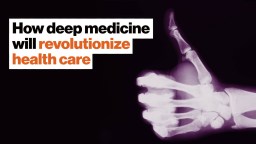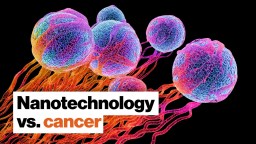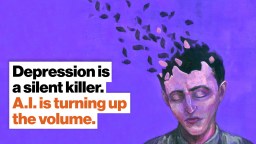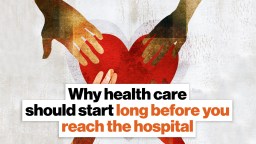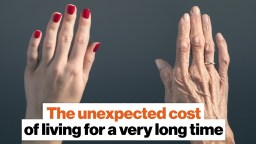medicine
A robotic teddy bear could improve physical and emotional outcomes in pediatric patients.
Scientists may have seen a way to cure a maddening symptom of hearing loss.
Extensive research at Yale signals the future of personalized medicine
Walmart is selling “snake oil,” said the general counsel of the organization bringing the lawsuit.
New technology could predict cancer up to 5 years in advance.
Medical science finally acknowledges what workers have known for years.
Some experts may worry that AI will depersonalize health care, but others see its potential to deepen relationships.
Giving A.I. a role in health care can help both doctors and patients.
▸
5 min
—
with
We may be able to detect cancer soon by simply peeing on a stick.
▸
8 min
—
with
5-HTP could help both constipation and depression, but dosage matters.
Artificial intelligence is a sophisticated tool in the fight against despression.
▸
3 min
—
with
Antibiotics are often the fastest and simplest way for doctors to help their patients. But with the threat of drug-resistant bacteria, how do we stop prescribing antibiotics?
What can 3D printing do for medicine? The “sky is the limit,” says Northwell Health researcher Dr. Todd Goldstein.
One of the world’s deadliest diseases, malaria takes the life of a child every two minutes.
Believe it or not, for a few decades, giving people “milk transfusions” was all the rage.
Upstreamism advocate Rishi Manchanda calls us to understand health not as a “personal responsibility” but a “common good.”
The health care payment system is due for a major overhaul.
Michael Dowling, Northwell Health’s CEO, believes we’re entering the age of smart medicine.
Big tech is making its opening moves into the health care scene, but its focus on tech-savvy millennials may miss the mark.
The diet claims that people with different blood types process their food differently. Does it pass muster?
The discovery could lead to improved treatments for chronic pain.
A new study from the University of Pittsburgh details how the anti-vaxx movement has divided and grown.
The Human Diagnosis Project project is building the world’s “open medical intelligence” system.
The issues that determine your health go way beyond seeing your doctor.
▸
3 min
—
with
The blood of horseshoe crabs is harvested on a massive scale in order to retrieve a cell critical to medical research. However, recent innovations might make this practice obsolete.
A bill in New York would let older kids get vaccinations against their parents’ wishes.
100 years ago, you could expect to live to 54. Our luxurious, 80-year-long lives come at a cost.
▸
2 min
—
with
Recently, “the London patient” became the second person in history to be cured of HIV. Now, “the Düsseldorf patient” appears to be the third, with the possibility of more on the way.









